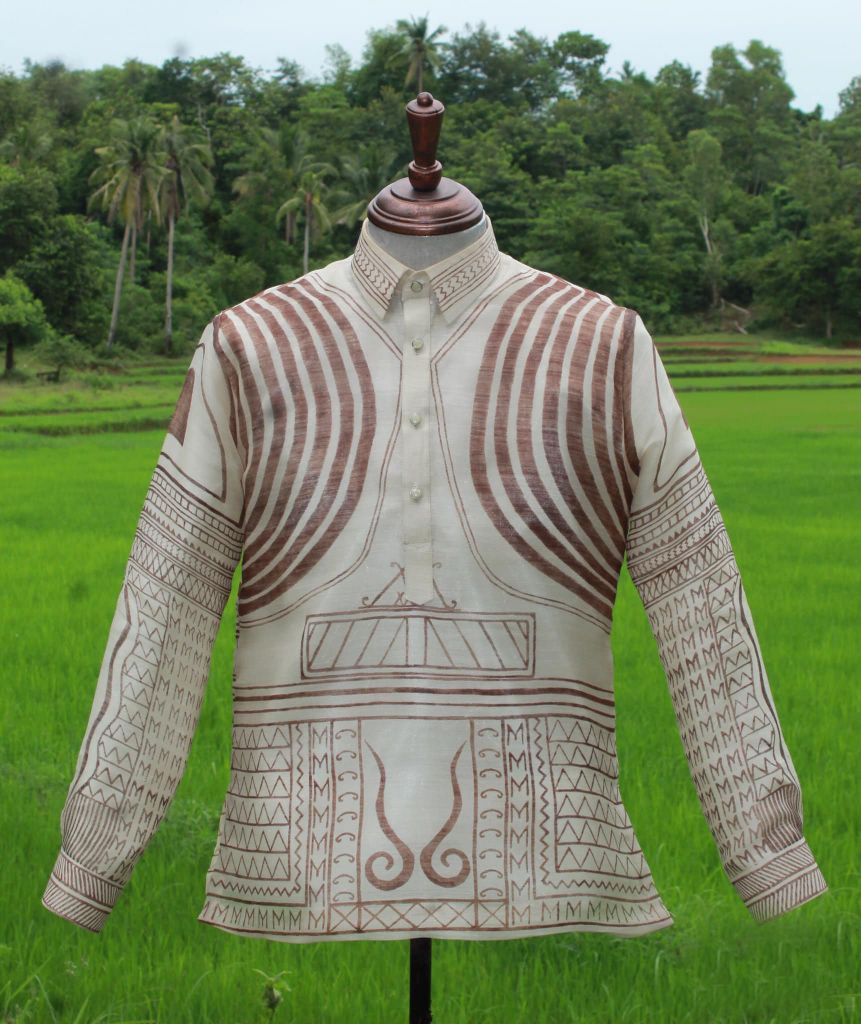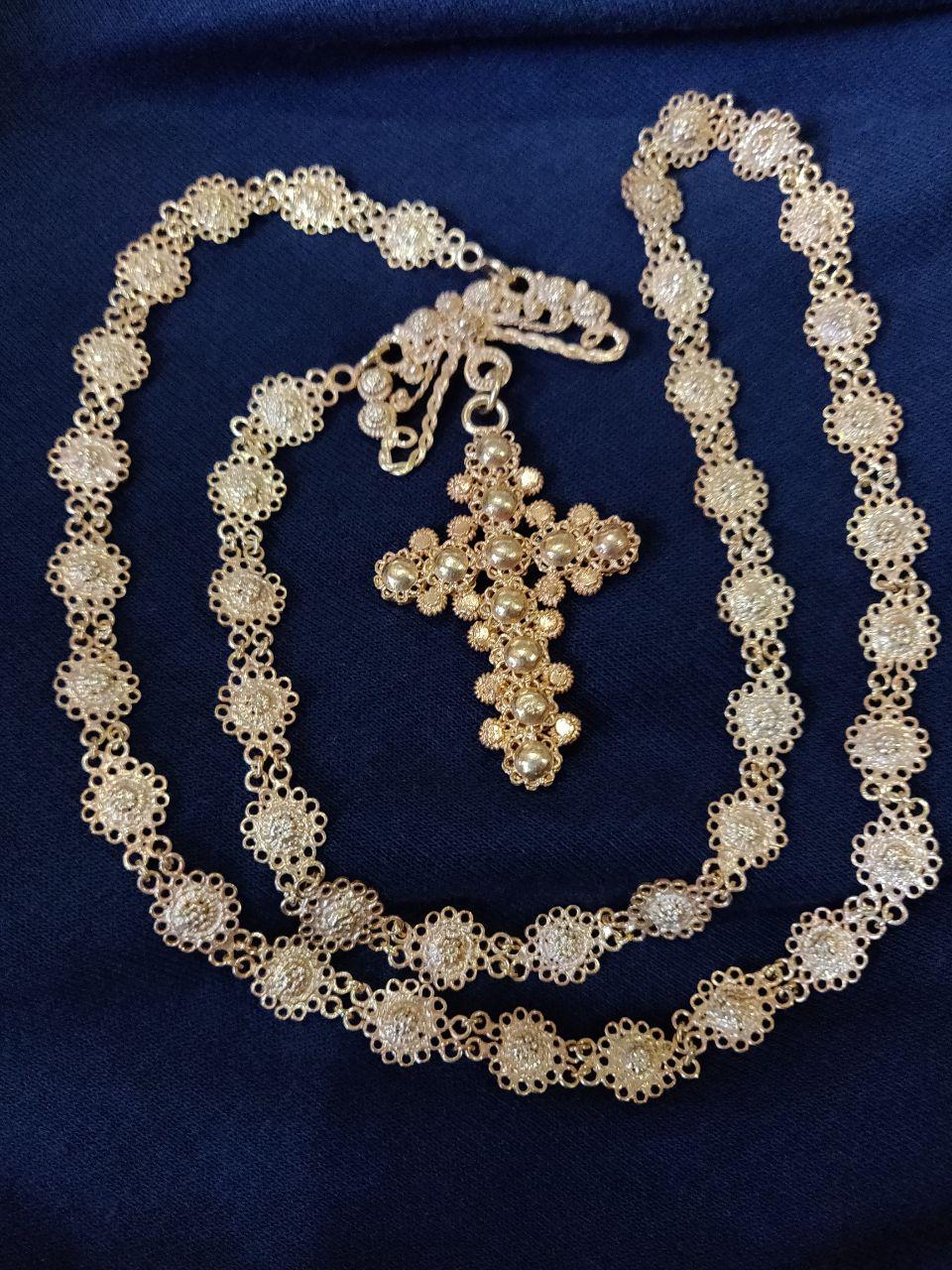Next week, Habi goes online
“The modern world is realizing the beauty of hand woven items, the beauty of natural fabric, and the beauty of tradition,” says Maribel Ongpin, chairperson of HABI Philippine Textile Council, over a Facebook Live press conference. “For us Filipinos, it’s part of our identity. We should understand it. We should enjoy it.”
Since 2009, the annual Likhang HABI Market Fair has been an exciting venue for this, offering a social experience of discovering hand-woven crafts, watching live demonstrations and cultural showcases and meeting like-minded individuals at the Glorietta Activity Center.
This year, HABI still goes on — online, that is, at www.shophabifair.com from Oct. 21 to 27, offering e-commerce for sustainable and ethical fashion and lifestyle products from over 30 merchants representing various weaving communities from Luzon, Visayas and Mindanao and a series of webinars.

Mahogany extract-dyed pineapple-silk barong Tagalog by HABI Piña Weaving Contest winner Raquel Eliserio’s son Carlo Reporen Eliserio.
The Cotton Project
From 450-plus weaving groups in the Philippines, there are 5,000 weavers. Forty-five percent are from Luzon, while 30 percent are from Visayas and the remaining 25 percent come from Mindanao with estimated revenues of P3,000 per weaver a month, according to fair committee member Mike Claparols.
Eighty percent of weavers use synthetic materials like polyester, made in China, ultimately lowering the quality of our textiles, while only 20 percent use cotton, piña and abaca.
HABI continues its long-term commitment and advocacy of reviving the use of pure Philippine cotton. HABI has partnered with the Philippine Fiber Industry Development Authority (PHILFIDA) to give our local farmer cottonseeds and threads for its Cotton Adoption Project to encourage more weavers to use pure cotton.
HABI provides cotton and logistics to selected weavers. Rambie Lim of the HABI Cotton Project shares, “We worked with weavers who could already use the thicker threads. We find ways to translate their weaving techniques into cotton.” They are currently from Dumaguete, Sulu, Palawan and Aklan.
“We are protecting weavers as protectors of our intangible cultural heritage,” she says.

What to expect
In collaboration with CulturAid, Kularts, House of Gongs and Museo ng Muntinlupa, HABI will present a series of webinars on the topic of Filipino identity and contemporary cultural practice in the Philippines and the diaspora from the first-ever international Voices from the Field Program. This webinar series aims to bridge interdisciplinary voices and encourage dialogue to better understand how our varied experiences as Filipinos have shaped the way we think, move and learn.
Also on the site is a four-day webinar titled “Nayong Pilipino for Mga Hibla ng Pamana: A Summit on Weaving as Intangible Cultural Heritage.”
Aside from the webinars, the latest book by Philippine textile experts Dr. Norma Respicio and Gayle Zialcita, Weaving Ways: Filipino Styles and Techniques, will also be available at the online fair. The book discusses the different weaving communities in the Philippines, their history and traditions, and the different weaving styles and techniques of Filipino weavers.
Another highlight is the third Lourdes Montinola Piña Weaving Competition, recognizing the exceptional craftsmanship and mastery of the delicate process of turning pineapple threads into works of art.
“The competition has encouraged us greatly over the years because it brings out new talent and revives old techniques. So we always look forward to the surprises that this competition will bring,” says HABI president Adelaida Lim.
The competition is open for all Filipino artisans who weave, dye, embroider or embellish piña. Last year’s winner was Master Raquel Eliserio of the Aklan weaving community. Her work inspires her son and apprentice Carlo Eliserio, upholding our wearable heritage into the next generation.
This year’s judges are fashion designers Leslie Mobo and Len Cabili, and piña textile expert and food historian Felice Sta. Maria.
For the complete schedule of talks and webinars, follow HABI The Philippine Textile Council on Facebook and @habifair on Instagram.


